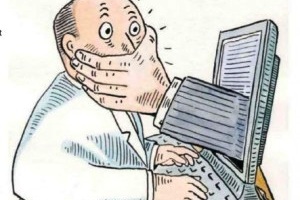In a new paper published in the Proceedings of the National Academy of Sciences, my co-authors and I explore the prevalence, causes and impacts of censorship and self-censorship in science.
We find that censorship is driven heavily by scientists themselves and, although the consequences of censorship are often pernicious in practice, censors tend to be motivated by prosocial concerns, such as curbing potential misinformation or protecting vulnerable populations.
The paper is open-access, so people can read it without concern for paywalls and other gatekeeping. Ditto with the subsequently published response to a criticism of the paper (wherein the critic modeled the very phenomenon the paper highlighted: justifying censorship under the auspices of prosocial ends).
- Clark, Cory, Lee Jussim, Komi Frey, Sean Stevens, Musa al-Gharbi et al. (2023). “Prosocial Motives Underlie Scientific Censorship by Scientists: A Perspective and Research Agenda.” Proceedings of the National Academy of Sciences 120(48): e2301642120.
- Clark, Cory, Musa al-Gharbi et al. (2024). “Reply to Darlow and Gray: Censorship Is Exclusion.” Proceedings of the National Academy of Sciences 121(21): e2404156121.
For those interested in exploring the themes of these essays in greater detail:
- Nicole Barbaro and I published an essay in Inside Higher Ed highlighting some of the ways scholars can empirically study censorship and self-censorship, and some of the challenges of distinguishing censorship from legitimate criticism or rejection, etc., available here.
- Cory Clark and I published an essay in Chronicle of Higher Education exploring reforms that could make censorship less likely to occur and easier to observe when it does occur, available here.
- In Reason magazine, I published an essay emphasizing that, although censorship is often carried out in the name of protecting marginalized populations, the people most likely to be censored, and who suffer the most pernicious impacts of censorship, are generally people who are institutionally vulnerable and isolated. More here.
- In Times Higher Education I published an essay explaining that although discussion of censorship and self-censorship often focuses on ‘kids these days,’ if we want to understand what’s happening in higher ed and other knowledge economy institutions, we need to turn our gaze towards ‘adults these days’ instead. More here.
- Cory and I will discussed the paper with science journalist Andrew Revkin here.

